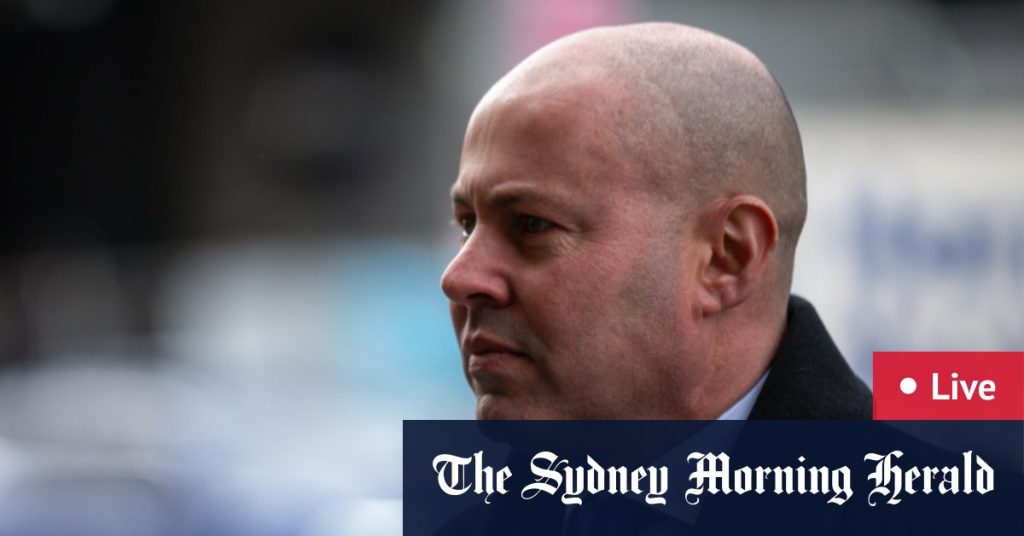Outgoing Liberal MP Karen Andrews believes that her party should make an effort to attract former Treasurer Josh Frydenberg back into parliament as he would be a valuable asset to the Liberals. This comes after the Australian Electoral Commission released a draft redrawing of electorate boundaries that would abolish the federal seat of Higgins and expand nearby seats, including Kooyong where Frydenberg lost to teal candidate Monique Ryan in the 2022 election upset. Reports have emerged that Frydenberg is considering running again, with supporters suggesting that 31-year-old Amelia Hamer, who was preselected for the seat, may need to step aside for Frydenberg.
Andrews refused to comment on whether this potential scenario would contribute to the Liberals’ difficulty in attracting women candidates, emphasizing the importance of having the strongest candidates in each seat to secure victory in the upcoming election. She expressed her belief that Frydenberg would be a valuable addition to the team and emphasized the need for the best possible individuals to lead the party forward. When asked about Frydenberg’s potential as a future leader and the implications for Opposition Leader Peter Dutton, Andrews expressed support for Dutton but also acknowledged Frydenberg’s leadership capabilities. She highlighted that leadership extends beyond the party leader to the shadow cabinet and indicated that Dutton had previously expressed openness to Frydenberg returning.
Andrews’ comments suggest a strategic approach to recruiting Frydenberg back into the fold, recognizing his leadership potential and the importance of having a strong team to contest the next election. The draft changes to electorate boundaries present an opportunity for Frydenberg to re-enter parliament and potentially play a key role in the party’s leadership. The notion of Frydenberg returning raises questions about the Liberal Party’s approach to gender diversity in candidate selection, but Andrews emphasized the priority of fielding the most competitive candidates regardless of gender. This situation underscores the complexities and strategic considerations involved in party politics and candidate recruitment.
The potential return of Josh Frydenberg to parliament could have significant implications for the Liberal Party, particularly in terms of leadership dynamics. While Andrews expressed support for Peter Dutton as the current leader, she also acknowledged Frydenberg’s leadership capabilities and the potential for him to assume a leadership role in the future. The prospect of Frydenberg coming back not only raises questions about party unity and potential shifts in leadership, but also highlights the strategic imperative of attracting strong candidates to secure electoral success. The evolving dynamics within the Liberal Party underscore the complexities and challenges of leadership succession and candidate recruitment in the lead-up to the next election.
Overall, Karen Andrews’ comments regarding Josh Frydenberg’s potential return to parliament reflect a strategic and pragmatic approach to candidate recruitment within the Liberal Party. The draft redrawing of electorate boundaries presents an opportunity for Frydenberg to re-enter the political arena, potentially reshaping the party’s leadership dynamics in the process. While the prospect of Frydenberg returning raises questions about gender diversity and party unity, Andrews emphasized the importance of fielding the best candidates to ensure electoral success. The evolving situation within the Liberal Party underscores the complexities and strategic considerations involved in leadership succession and candidate selection in the lead-up to the next election.













